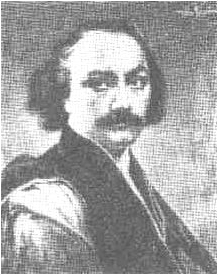 |
 |
 |
 |

David Guramishvili – This Georgian poet was born in 1705 in the village Gorisubani. He spent his youth in his family’s manor in Saguramo. His life was very tragic. Weakened with domestic strife, Georgia was often subjected to interference from Turkey and Iran. There were frequent Lesgin raids, and Guramishvili’s family had to move to the Ksani ravine in the village of Lamiskana. Around 1727-28, Guramishvili was captured by Lezgins and sent to the Daghestanian village of Osokolo. He escaped from there and found shelter with Russian settlers near the river Tergi. In 1729, Guramishvili went to Moscow and became actively involved in the cultural life of Georgians gathered around the king Vakhtang VI. These years were fruitful, and it is from this period that the biography of Guramishvili as a poet begins.
After the death of Vakhtang VI in 1737, emigrants who had lost hope of returning to their homeland became citizens of Russia. In 1738, they created a company of Georgian hussars, which was later re-formed into regiment. They received lands in different provinces of Russia, mainly in Ukraine, in Mrgorod and Zubovka. Guramishvili participated in Russian campaigns against Turkey, Sweden and Prussia between 1738 and 1760. He was captured in Prussia, and was confined to Magdeburg prison until 1759. In 1760, with rank of first lieutenant, he left military service. He settled in Ukraine with his young wife, Tatiana Avalishvili, and began to farm. Because of the difficult political situation, he was unable to return to Georgia and spent the rest of his life in Ukraine. He died in Mirgorod in 1792 and was interred in the yard of a local church.
The poet formed all of his literary works into one collection and in 1787 gave it to Mirian Batonishvili (son of Irakli) to bring it to Georgia and thereby fulfill his moral obligation to his homeland and nation. It is as this single collection that the literary heritage of David Guramishvili has come down to the present day. The “Davitiani” included lyrics as well as two poems, one of which is a historical piece entitled “Miseries of Georgia”. In this work the author describe historical events as well as his tragic life. His writings are magnificent works of art.
Guramishvili lyrics praise the touching generosity and cordiality of ordinary Russian people and the charm and fascinating nature of Ukrainian woman from Zubovka. His second poem, “Merry Spring”, also known as “The Herder Katsvia”, takes place against the background of Ukraine’s boundless steppes. The poem represents the first example of genre art in Georgian literature.
Back |
 |